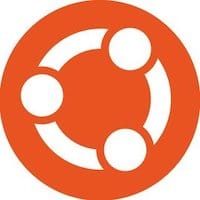Ubuntu HowTos and Canonical on Buzzwords
-
How To Delete Repository and GPG Key on Ubuntu Linux - idroot
In this tutorial, we will show you how to delete the repository and GPG key on Ubuntu Linux. For those of you who didn’t know, A repository is a collection of software packages that are stored on a remote server and can be downloaded and installed on a computer. In the case of Ubuntu Linux, a repository is a collection of packages that are maintained by the Ubuntu team and made available to users of the operating system. In addition to the official repositories provided by the Ubuntu team, users can also add third-party repositories to their system. This can be useful if you want to install software that is not included in the official repositories, or if you want to use a different version of a package than the one provided by the official repositories.
A GPG (GNU Privacy Guard) key is a digital signature that is used to authenticate the identity of the person or organization that created a piece of software. In the context of Ubuntu Linux, a GPG key is used to verify the authenticity of the packages in a repository.
This article assumes you have at least basic knowledge of Linux, know how to use the shell, and most importantly, you host your site on your own VPS. The installation is quite simple and assumes you are running in the root account, if not you may need to add ‘sudo‘ to the commands to get root privileges. I will show you the step-by-step remove of the repository and GPG key on Ubuntu 22.04 (Jammy Jellyfish). You can follow the same instructions for Ubuntu 22.04 and any other Debian-based distribution like Linux Mint, Elementary OS, Pop!_OS, and more as well.
-
How To Install and Use Docker on Ubuntu - Debian - TecAdmin
Docker is an open-source platform that enables developers to create, deploy, and manage applications in a lightweight, secure, and efficient manner. It uses containers, which are lightweight and portable, to package applications and related dependencies into isolated environments. Docker containers can be deployed on any operating system and can be used to run applications in any language or framework.
Docker is based on the idea of containerization, which is the process of packaging applications and their dependencies in isolated environments. This helps developers quickly and easily deploy applications without having to worry about managing dependencies and configuring system settings.
-
What is MLOps?
MLOps is the short term for machine learning operations and it represents a set of practices that aim to simplify workflow processes and automate machine learning and deep learning deployments. It accomplishes the deployment and maintenance of models reliably and efficiently for production, at a large scale.
MLOps is slowly evolving into an independent approach to the machine learning lifecycle that includes all steps – from data gathering to governance and monitoring. It will become a standard as artificial intelligence is moving towards becoming part of everyday business, rather than just an innovative activity.

